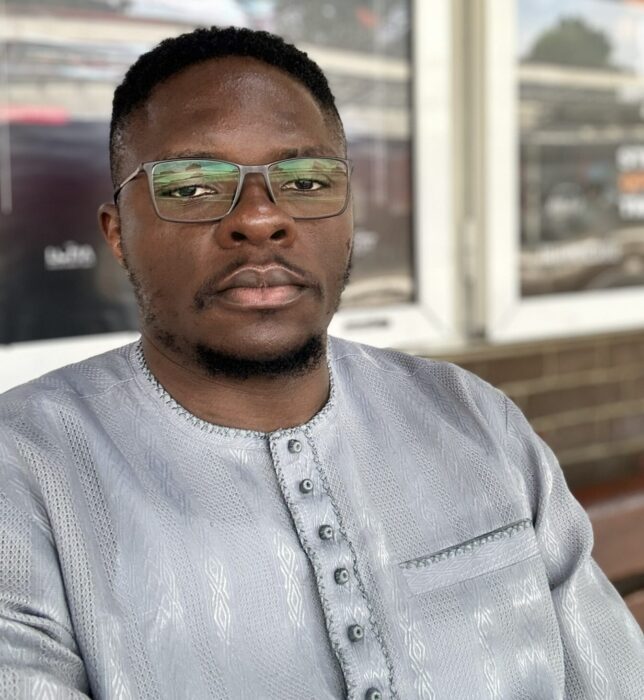Africa
“Edo no be Lagos” — But at What Cost?, by Rex Osagie

The people of Edo, though relatively apathetic this time, have once again demonstrated that no one can force them to do anything or vote for anyone against their will, not even a sitting governor. However, as expected, the results will likely lead to litigation.
For clarity, “Edo no be Lagos” means that the politics of Edo cannot be dictated by one individual, as is often said to happen in Lagos. For this reason, the state has consistently voted against aspiring godfathers rather than against specific parties.
As I write this, the results of the 2024 Edo Gubernatorial Elections are being collated, and there’s suspense in the air, fueling suspicion, press releases, and early calls for the elections to be cancelled. It’s not hard to see why—every degenerative milestone that typically accompanies INEC elections has been observed—police shows of force, the involvement of other state governors, delayed arrival or failure of INEC materials to appear, BVAS malfunctions, shadowy collation at the LGA level, and postponement of final collation accompanied by the scent of tear gas at various points. Both APC and PDP are familiar with this script.
Early indicators suggest that the APC has narrowly secured this one, despite fielding a candidate many have described as underwhelming. And this victory comes at a time when the state is struggling to achieve self-sustainability amid declining FAAC allocations, hardly an ideal moment for stomach infrastructure politics.
Asue Ighodalo’s Peccatum Originale
Though a co-founder of Banwo & Ighodalo, one of Nigeria’s premier law firms, it would be nearly impossible to find a candidate more burdened by his principal’s infamy than Asue Ighodalo. Not even the Igbinedion stain on Ize-Iyamu comes close. On paper, his résumé outshines his contenders’—so what went wrong?
During Obaseki’s eight-year tenure as governor, along with his significant achievements in the state’s economy and human capital development, he also (1) emasculated various tout leaders who had a stranglehold on the state, (2) dismantled the Community Youth leaders who had made land acquisition a nightmare, (3) challenged the authority of the state’s paramount traditional ruler, the Oba of Benin, over the return of looted artefacts, even attempting to balkanize the kingdom, (4) completely demolished his longtime ally, Phillip Shuaibu, the erstwhile deputy governor, who he successfully impeached and exiled, (5) fell out with his predecessor, Senator Adams Oshiomhole, and (6) as Patrick Obahiagbon described, “descended from the sublime to the ridiculous” in handling the Edo State House of Assembly issue, where 14 Members-elect were denied inauguration due to their lack of alignment with the governor’s interests. A victory for Ighodalo would have meant pacifying all the above interests, which seems unlikely.
Zoning
The informal agreement that the next governor should come from the Edo Central senatorial district, or Esan land, in the spirit of fairness was widely accepted. This meant that the Labour Party candidate, Olumide Akpata, stood no chance, despite his party being deeply rooted in the fabric of the state’s society. This zoning agreement also explains why the estranged deputy governor, Phillip Shuaibu, from Edo North, did not garner public sympathy after his fallout with his boss over his bid to succeed him.
Many believe this zoning agreement may have given Matthew Okpebholo from Esan land an easy path to victory based on his heritage. If he does clinch the ticket, he will go down in history as the candidate without a memorable manifesto or defining selling point. Ighodalo, also from Esan land, was not in a better position, as he is widely perceived as not being “homegrown”—if anything, he’s seen as closer to the Lagos politicians that the state has historically despised.
Protest Votes
Royalists, who have always been sceptical of anything associated with Obaseki, would never support anything he endorsed. Edo South voters do not care much for the APC or PDP party structures, recognizing that they are essentially the same. Meanwhile, Etsako voters from Edo North, still reeling from Obaseki’s treatment of Shuaibu, have historically shown a tendency to vote en bloc for the APC. Adams Oshiomhole’s influence in that region remains strong, so they are expected to follow his lead.
Voter apathy also played a significant role, with many individuals feeling disenfranchised after the presidential elections and opting to stay home instead of voting. There are also unconfirmed reports of people being brought in from nearby southwestern states in buses to participate in the elections, though their affiliations remain speculative.
Outlook
There is a muted celebration over the end of Obaseki’s reign of highhandedness. The question now is how quickly Okpebholo can develop a manifesto, and how inclusive it will be. Litigation seems inevitable, and with the lessons learned from the presidential elections, it will take significant judicial manoeuvring for any evidence to be disregarded by the courts.
Another issue is administrative continuity—how many ongoing projects will be completed, and how many will be abandoned? More importantly, will the state return to an era of indiscriminate borrowing and debt accumulation?
Rex Osagie writes from Upper Mission, Benin City.

























